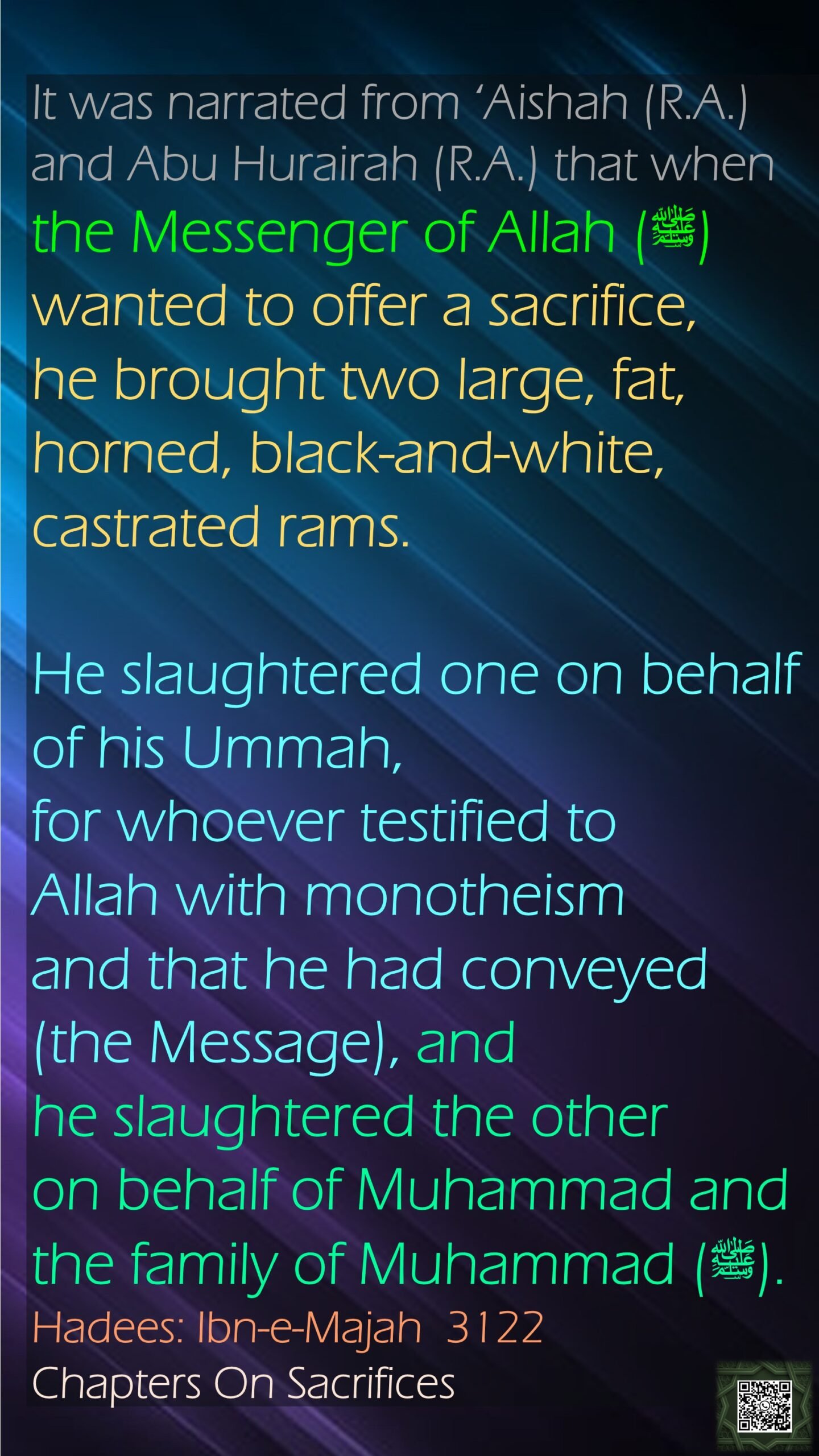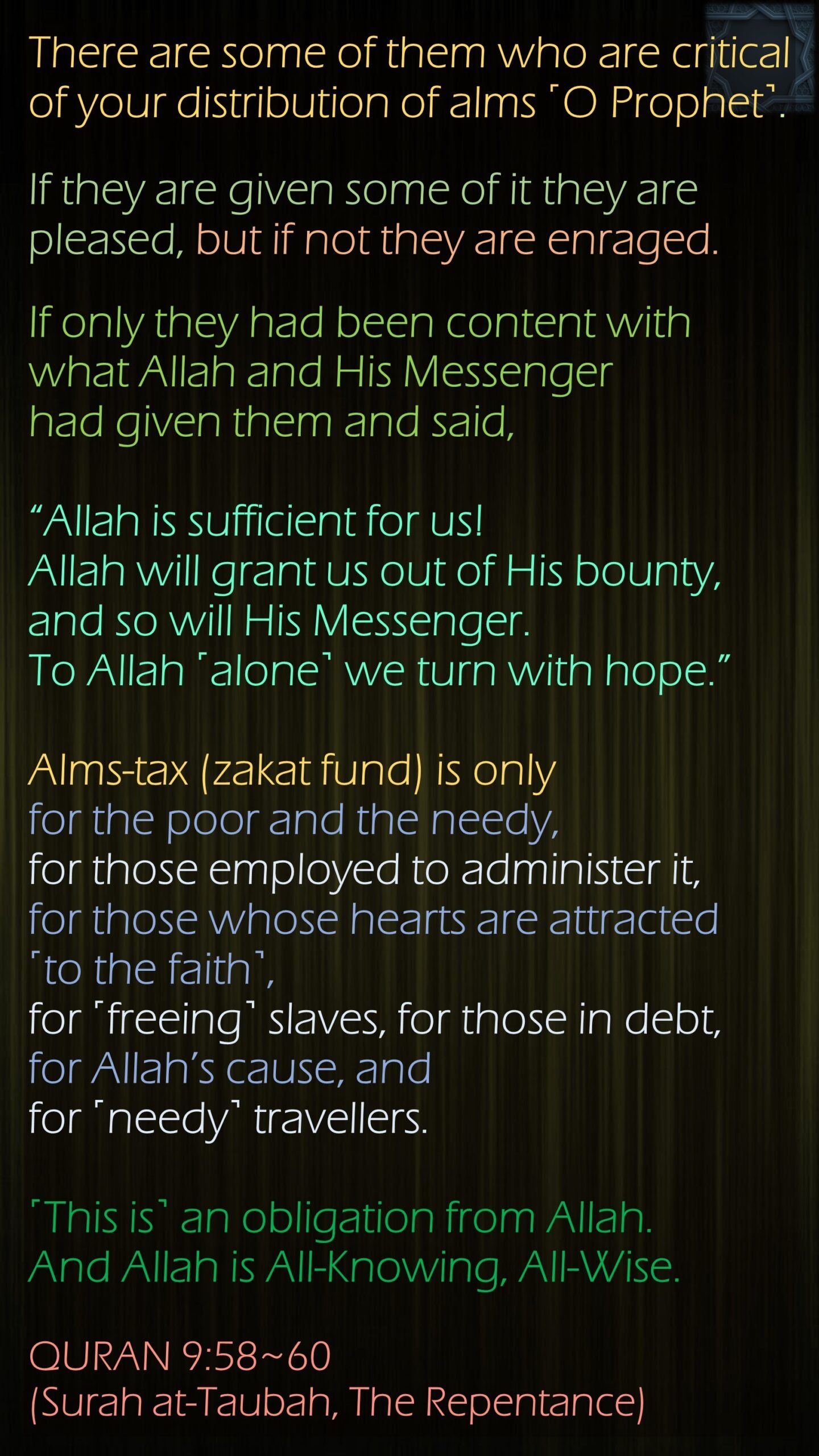Skip to Content
Tag Archives: alms
- Home -
- Posts tagged "alms"
6
Jan, 2026
Hadees, Islam
Allah, alms, chairity, hoard, in cause of Allah, inspirations, islam, islamic, Muhammad, not, provisoion, spend, sustenace, Zakat
6
Jun, 2025
Islam, Quran
10, 3122, Allah, alms, animal.grateful, ayat, beg, camel, cattle, daily, eat, eniough, fall, family, feed, goat, Hajj, Ibn-e-Majah, inspirations, islam, islamic, lifeless, lined up, miskiin, miskin, Montheism, Muhammad, needy, not, One, pronounce, quran, Sacrifice, self, shaughter, subject, Surah, tax, testify, two, ummah, Zakat, zul hajj, Zul Hijja
4
Jan, 2025
Hadees, Islam
2302, Allah, alms, alms-tax, charity, daily, debt, dinar, dollar, donate, everything, five, gold, inspirations, islam, islamic, keep, Mount, mount uhud, Muhammad, Muslim, pillar, uhad, Zakat
30
Mar, 2024
Islam, Quran
Allah, alms, alms tax, An-Nur, ayat, code, daily, guidance, inspirations, islam, islamic, Life, light, Mercy, messenger, Messenger of Allah, Muhammad, Obey, prayer, quran, successful, Surah, Surah Noor, tax
12
Nov, 2023
Islam, Quran
afterlife, ALIF, Allah, alms, ayat, book, daily, day, Faith, good-doers, guide, Guided, hereafter, inspirations, islam, islamic, judgement, LAM, MEEM, Mercy, Muhammad, prayer, quran, rich, successful, Surah, sure, tax, truly, verse, wisdom
31
Oct, 2023
Islam, Quran
admister, All-Knowing, All-Wise, Allah, alms, cause, charity, daily, debt, distrivbution, Faith, free, inspirations, islam, islamic, Muhammad, needy, obligation, poor, quran, repentance, slave, Surah, taubah, tax, Traveller, Zakat
22
Apr, 2023
Hadees, Islam
Allah, alms, avoiad, charity, daily, deed, evil, good, inspirations, islam, islamic, quran, sadaqa
29
Apr, 2022
Islam, Quran
Allah, alms, Angels, ayat, battle, beggars, believe, books, captives, Chapter 2, daily, day of judgement, east, Faith, freeing, inspirations, islam, islamic, mindful, orphans, patient, pledge, poor, prayer, prophets, quran, relatives, righteousness, suffer, Surah, travelers, true, Verse 177, wealth, west
12
Apr, 2022
Islam, Quran
Allah, alms, ayat, Baqarah, bow down, burden, Chapter 2, Cow, daily, falsehood, Heifer, humble, inspirations, islam, islamic, Lord, meet, patience, quran, righteousness, scripture, Surah, tax, their, truth, verses 42 to 46
24
Dec, 2021
Islam, Quran
alms, ayat, Chapter 51, daily, deeds, good, inspirations, islam, islamic, poor, prayer, quran, righteous, sleep, Surah, Tahajjud, verse 15, verse 16, verse 17, Verse 18, verse 19










